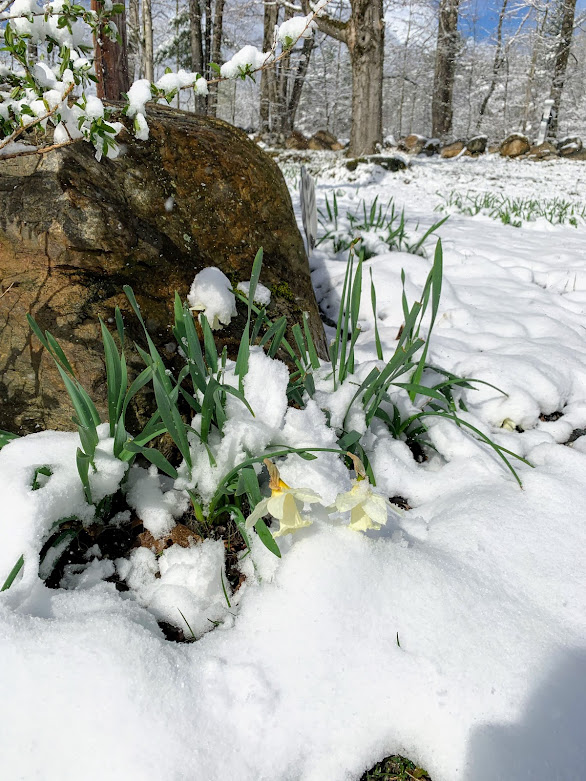"Maybe if we reinvent whatever our lives give us we find poems." --Naomi Shihab Nye
Sunday, February 2, 2020
Groundhog Day
Monday, January 20, 2020
Where Do We Go from Here?
Power, properly understood, is the ability to achieve purpose. It is the strength required to bring about social, political or economic changes. In this sense power is not only desirable but necessary in order to implement the demands of love and justice.
One of the greatest problems of history is that the concept of love and power are usually contrasted as polar opposites. Love is identified with a resignation of power and power with a denial of love....
What is needed is a realization that power without love is reckless and abusive and that love without power is sentimental and anemic. Power at its best is love implementing the demands of justice. Justice at its best is love correcting everything that stands against love....
Wednesday, January 15, 2020
Introduction to Poetry
I ask them to take a poem
and hold it up to the light
like a color slide
or press an ear against its hive.
I say drop a mouse into a poem
and watch him probe his way out,
or walk inside the poem’s room
and feel the walls for a light switch.
I want them to waterski
across the surface of a poem
waving at the author’s name on the shore.
But all they want to do
is tie the poem to a chair with rope
and torture a confession out of it.
They begin beating it with a hose
to find out what it really means.
--
Billy CollinsSaturday, January 11, 2020
Thanks, Robert Frost
Do you have hope for the future?
someone asked Robert Frost, toward the end.
Yes, and even for the past, he replied,
that it will turn out to have been all right
for what it was, something we can accept,
mistakes made by the selves we had to be,
not able to be, perhaps, what we wished,
or what looking back half the time it seems
we could so easily have been, or ought...
The future, yes, and even for the past,
that it will become something we can bear.
And I too, and my children, so I hope,
will recall as not too heavy the tug
of those albatrosses I sadly placed
upon their tender necks. Hope for the past,
yes, old Frost, your words provide that courage,
and it brings strange peace that itself passes
into past, easier to bear because
you said it, rather casually, as snow
went on falling in Vermont years ago.
--by David Ray
Monday, December 16, 2019
Against Certainty
There is something out in the dark that wants to correct us.
Each time I think “this,” it answers “that.”
Answers hard, in the heart-grammar’s strictness.
If I then say “that,” it too is taken away.
Between certainty and the real, an ancient enmity.
When the cat waits in the path-hedge,
no cell of her body is not waiting.
This is how she is able so completely to disappear.
I would like to enter the silence portion as she does.
To live amid the great vanishing as a cat must live,
one shadow fully at ease inside another.
--Jane Hirshfield
Saturday, December 14, 2019
A Morning Offering
There is a quiet light
that shines in every heart.
It draws no attention to itself
though it is always secretly there.
It is what illuminates
our minds to see beauty,
our desire to seek possibility
and our hearts to love life.
Without this subtle quickening
our days would be empty and wearisome,
and no horizon would ever
awaken our longing.
Our passion for life is quietly sustained
from somewhere in us
that is wedded to the
energy and excitement of life.
This shy inner light
is what enables us
to recognize and receive
our very presence here as blessing.
We enter the world as strangers
who all at once become
heirs to a harvest of memory,
spirit, and dream
that has long preceded us
and will now enfold,
nourish, and sustain us.
--JOHN O'DONOHUE
One Art
The art of losing isn’t hard to master;
so many things seem filled with the intent
to be lost that their loss is no disaster.
Lose something every day. Accept the fluster
of lost door keys, the hour badly spent.
The art of losing isn’t hard to master.
Then practice losing farther, losing faster:
places, and names, and where it was you meant
to travel. None of these will bring disaster.
I lost my mother’s watch. And look! my last, or
next-to-last, of three loved houses went.
The art of losing isn’t hard to master.
I lost two cities, lovely ones. And, vaster,
some realms I owned, two rivers, a continent.
I miss them, but it wasn’t a disaster.
—Even losing you (the joking voice, a gesture
I love) I shan’t have lied. It’s evident
the art of losing’s not too hard to master
though it may look like (Write it!) like disaster.
--Elizabeth Bishop
When Worry Showed Up Again
It slithered in snakelike, the worry, and hissed in a sinister whisper, What if you said too much? Why can’t you just be quiet? I felt its ...

-
When you lose someone you love, Your life becomes strange, The ground beneath you becomes fragile, Your thoughts make your eyes unsure; An...
-
Though we need to weep your loss, You dwell in that safe place in our hearts, Where no storm or night or pain can reach you. Your love was l...
-
Agenda in a time of fear: Be not afraid. When things go wrong, do right. Set out by the half-light of the seeker. For the well-lit problem b...









